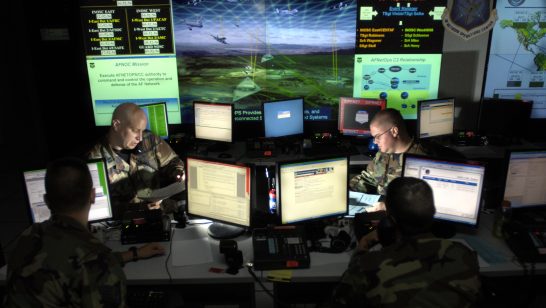
The future of the 1987 US-Russian Intermediate-Range Nuclear Forces Treaty (INF) is in serious jeopardy.
- The United States has accused Russia of flight-testing and deploying a Treaty-prohibited ground-launched cruise missile, the SSC-8.
- Whilst denying these allegations as unsubstantiated, Russia has also formulated its own allegations of US non-compliance, including those concerning the US Missile Defence (MD) installations in Europe.
If INF Treaty collapses, European security will take a heavy blow. At stake is not only an agreement which helped to end the Cold War and eliminated an entire category of U.S. and Soviet/Russian ground-launched cruise and ballistic missiles, but also the fate of arms control as we know it.
In the latest ELN report, Katarzyna Kubiak, Transatlantic Post-Doc Fellow for International Relations and Security at the Norwegian Institute for Defence Studies, examines the state of play and recommends measures to overcome the INF crisis, with special emphasis on the role that European states can play.
The report’s principal findings are:
- Keeping the treaty in limbo is not viable in the long term: because of the domestic, security and foreign policy considerations, Washington and Moscow cannot indefinitely prolong the current crisis without either a positive breakthrough or discontinuation of INF;
- The key to finding a way out is a proper understanding of Russia’s motives for its alleged development of a treaty-prohibited missile system. The SSC-8 is not primarily a response to US or NATO activities, but rather an attempt to address military power shifts taking place on both of Russia’s flanks – European and Asian.
- No amount of military or economic coercion by the U.S. or NATO would bring the Kremlin back to compliance. Military and economic measures can at best serve as an adjunct to diplomacy, but will not resolve the crisis.
If, as they claim, Washington and Moscow are truly interested in maintaining the INF treaty, they need to hasten the speed in finding a diplomatic solution. The report recommends the following:
- Preserve the INF
- The U.S. should make a unilateral offer of missile defence transparency to break the stalemate, win moral and negotiating high ground, build pressure on Russia to resolve the SSC-8 non-compliance issue and strengthen the credibility of its position in Europe.
- Europe should insist on putting Moscow to such a diplomatic test before deciding to pursue expensive military and economic measures against Russia. European NATO allies should also try to convince Washington to consider verifiable limits on regional ballistic missile defence in response to Russia resolving the SSC-8 non-compliance issue.
- In parallel, Europe should work with China and India to see whether the proposal of a global and comprehensive regime, which would eliminate all types of ballistic and cruise missiles between 500 and 5.000 km, can be revived.
- If INF cannot be preserved, manage its collapse
- If diplomacy does not succeed and the collapse of INF collapse is considered inevitable, its failure should serve as a springboard to negotiate better, more modern and comprehensive arms control arrangements.
- Washington should propose to work together with Moscow on the successors to the INF and New START treaties, which should not be seen as a reward for bad behaviour but an investment in a more stable future.
- In a post-INF environment, European NATO allies would need to nevertheless explore cruise missile defence as a credible, collective answer to hedge against guided missiles threat, including the SSC-8.
The opinions articulated above also do not necessarily reflect the position of the European Leadership Network or any of its members. The ELN’s aim is to encourage debates that will help develop Europe’s capacity to address pressing foreign, defence, and security challenges.


